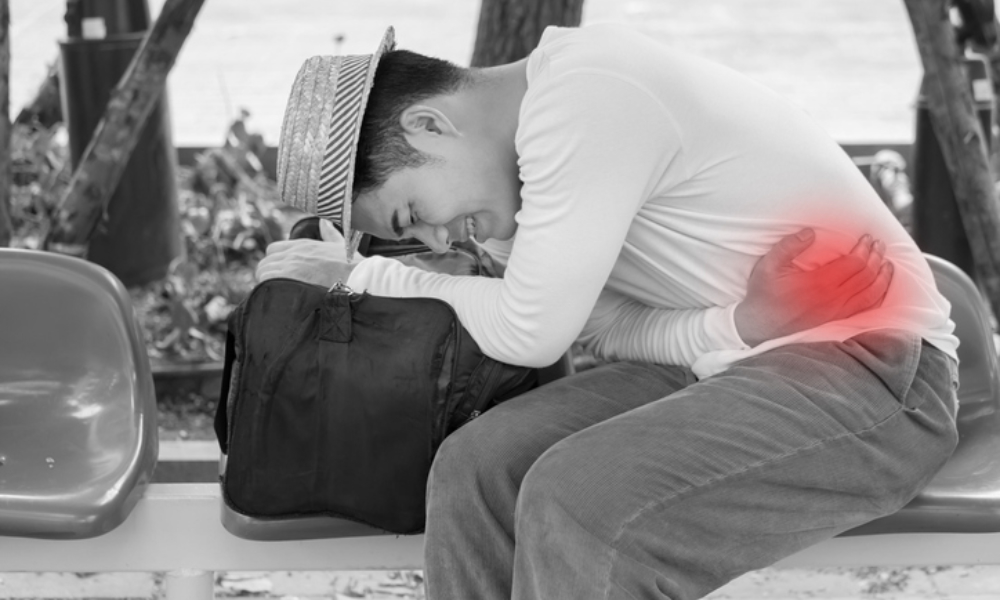
How to Successfully Avoid Travel Constipation
Travel constipation is a genuine condition, and if you’ve ever been on vacation beforehand noticed that you had trouble with regular bowel movements—or if you couldn’t go at all—you likely had a case of travel constipation. However, knowing a little more about what causes travel constipation, and constipation in general, can help you avoid being uncomfortable when you’re supposed to be avoiding your vacation. Also, there are ways to remedy constipation if you find you’re already struggling with it. Read on to learn more about the different types of constipation, how to avoid it, and what you can do to cure it, particularly if you’re traveling or on vacation.
What Is Constipation and What Causes Constipation?
It’s important to understand that everyone’s body is different and so is their diet. However, constipation is generally defined as having less than three bowel movements in one week. As our bodies produce waste, stools need to be able to pass through the colon in a relatively quick manner. If they don’t, they become hard, dry, and difficult to pass. When this happens, patients often strain to pass the stool, which can be uncomfortable and even cause medical problems. The colon needs lubrication (water) in order to pass the stool, so if someone doesn’t drink enough water, this can be a primary cause of occasional bouts of constipation. Also, a diet low in fiber can cause constipation as well. Other causes include living a sedentary lifestyle, holding bowel movements for too long, and having high-stress levels.
Chronic constipation is correlated with some significant diseases, and if you suffer from chronic constipation and over-the-counter remedies do not help, you should speak with your physician immediately. Most often, constipation is just a sign of not enough water, fiber, or exercise, but if it is chronic, it could be a marker for:
- Intestinal blockage
- Colon cancer
- Rectal cancer
- Parkinson’s disease
- Diabetes
- Narrowing of the colon
If you suspect something is wrong, it’s always best to check with your healthcare provider, just in case.
What Are the Causes of Travel Constipation?
The root causes of travel constipation are similar to that of general constipation, but there are some significant differences that are especially important when it comes to prevention.
- Dehydration. Just like with regular bouts of constipation, you’re bound to be more dehydrated than normal while traveling. Not only might you not be paying attention to your daily water intake, but you may also be trying to boost your energy with excess caffeine or overindulging in alcoholic beverages, both of which can dehydrate you even more.
- Lack of movement. Living a sedentary lifestyle can contribute to constipation, but when you’re traveling and stuck in a seat for hours, whether it be a train, plane, or car, it can throw your digestive system out of whack.
- Change in routine. Our bodies become used to our daily routines and traveling certainly throws any type of normalcy off.
- Eating junk food. If you typically eat a healthy diet and suddenly turn to junk food on the go because it’s quick and easy when traveling, this can shock your digestive system, and contribute to constipation, particularly if you’re eating no fiber.
How to Prevent Constipation
You can prevent constipation, particularly travel constipation, by being very mindful of your habits when you travel. Before you travel, it’s a wise idea to begin a probiotics regimen, as these can promote good gut bacteria. Also, if you’re heading somewhere, such as a different time zone, you can start preparing your body ahead of time by alternating your sleep schedule. This way, there isn’t such a sudden shock and a change of routine when you do arrive.

During transit, you want to make sure that you get up and move as often as possible. This can be tough when you don’t want to pull over when you’re making good time, or you don’t want to stand up on an airplane. You must keep the body moving when you’re sitting for long periods, even if it’s to stretch your legs. Also, don’t hold bowel movements in. If there’s a line for the bathroom, it’s best that you wait in line and not put it off.
Drink plenty of water and opt for fiber-rich foods while you’re traveling. Of course, when you’re on vacation, you’ll want to enjoy some treats, but don’t forget to reach for foods such as oatmeal, apples, pears, and nuts. You can also pack fiber supplements if you feel you won’t get enough fiber from food. Also, it’s a good idea to moderate your caffeine and alcohol intake, as these will dehydrate you.
What Are Constipation Symptoms and How Do I Relieve Constipation?
Constipation is generally described as passing less than three stools per week; however, some patients may feel bothered if they don’t pass a daily stool, and they may wish to speak to their provider about that, as everyone’s body is different. Other symptoms include:
- Having hard, dry, or lumpy stools
- Straining when having a bowel movement
- Feeling “full” even after having a bowel movement
If these symptoms persist beyond traveling, you should contact your physician.
If you’re traveling and you’re simply a little dehydrated, sometimes the problem can be fixed with drinking water and moving around. You may also want to try a stool softener. However, if that doesn’t work, the next thing you could try would be a laxative. It’s important to know that there are two types of laxatives: osmosis and stimulants. It’s always best to try the osmotics first because they are gentler on the digestive system.
Osmotics are known by the brand names Miralax, Milk of Magnesia, or Metamucil, and these work by causing more water to build up in the colon, which makes it easier for the stool to pass. Often used in combination with a stool softener, these can be greatly effective but can take from 12-24 hours to work.
Stimulant laxatives work a little faster, typically within 6 to 8 hours. They work by causing contractions in the digestive lining in order to pass the stool. After taking a stimulant, it’s wise to stay close to a bathroom, as the need to go can come on suddenly.
Enemas and suppositories are also an option when it comes to relieving constipation, as well as remedies such as mineral oil.
If you need more information on constipation or constipation relief or need to be seen by a physician, contact us at www.ncdhp.com today. We provide comprehensive, quality care to all of our patients for a variety of gastrointestinal disorders.